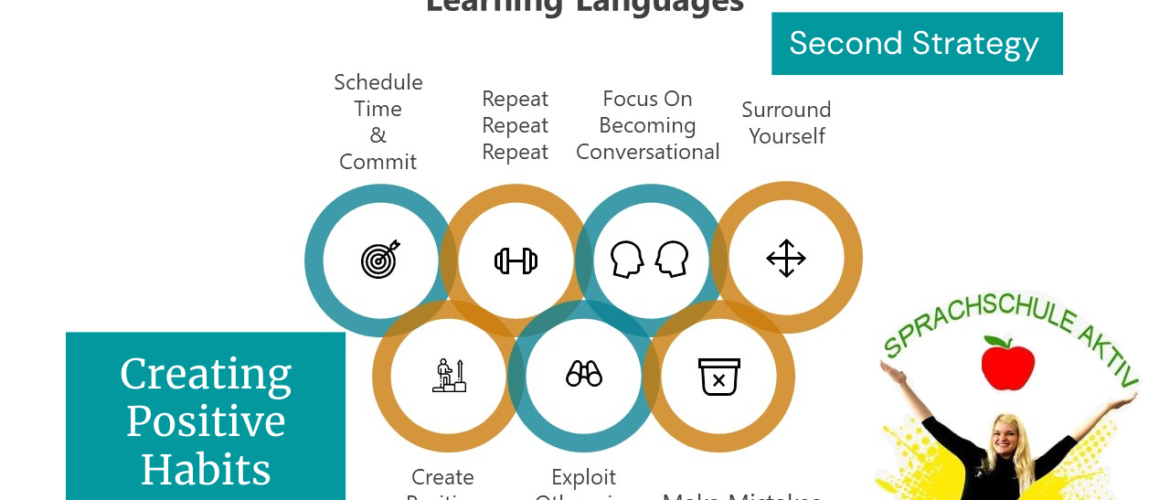Learning a new language requires a lot of time and effort
Often, people tend to be highly motivated in the beginning of the learning process. They reserve time slots for repeating vocabulary, watching videos and learning about grammar rules.
A common technique is to spend a large time block (e.g., 3-4 hours) on one activity such as reading through chapter 1-3 of the textbook or learning 40 new words.
However, studies on how the brain works suggest that this technique may not be the best to remember new words or grammar structures. Moreover, the motivation in the beginning often fades and longer pauses of doing nothing become more frequent.
How to “stay on course”?
To “stay on course” and reach the own learning goals, it is thus crucial to create positive learning habits and small rituals early in the process. The goal should be to integrate learning into your day – as you see fit. Learning a new language should be like a regular exercise routine you do voluntarily.
A small learning unit every day has higher return on invests than trying to learn a whole day every second day of the week. These daily interventions could include:
- Reviewing new words 15 minutes every day before work
- Reading 1 page in your textbook each day during lunch
- Watching a movie or episode in the targeted language every evening
- Try to speak every Monday, Wednesday and Friday at least 15 minutes in your targeted language
One technique to create these positive habits and stick to them is to use so called “anchors” that already exist in your daily routine. So choose an anchor, something that you always do and combine it with your learning goal. Drinking your daily coffee in the morning could also be done over reading over your vocabulary list.
The most important thing is that it should feel natural and easy to implement. Do not expect to read an entire news article when you just began to learn basic words. A good habit should be doable, fun, and engaging. You can always extend your habit.
Here, another implementation tip is to ask yourself what the absolute minimum of learning will be for a typical day of yours. For some this will be reading multiple pages, for others this means repeating 10 words. Therefore, integrating new habits into your day-to-day activities needs to fit to your needs.
In the same sense, if habits do not “feel right” and are perceived as an obstacle, please just change them. Monitoring the results and possibly changing your new habits along the way is key to success.
To conclude: Whatever you do, do it regularly and integrate learning a new language into your day-to-day activites.





